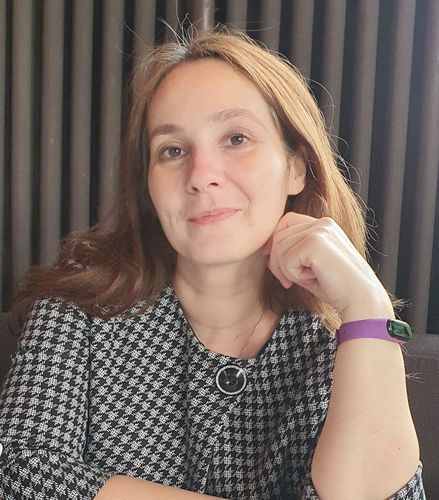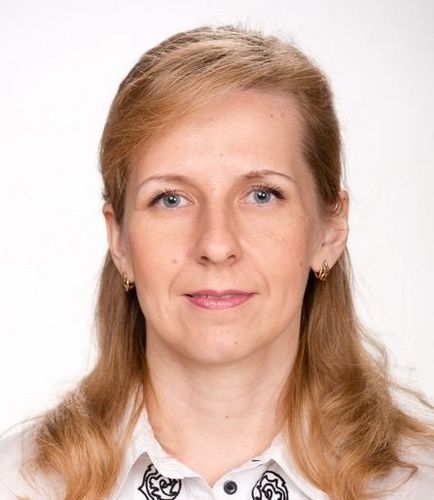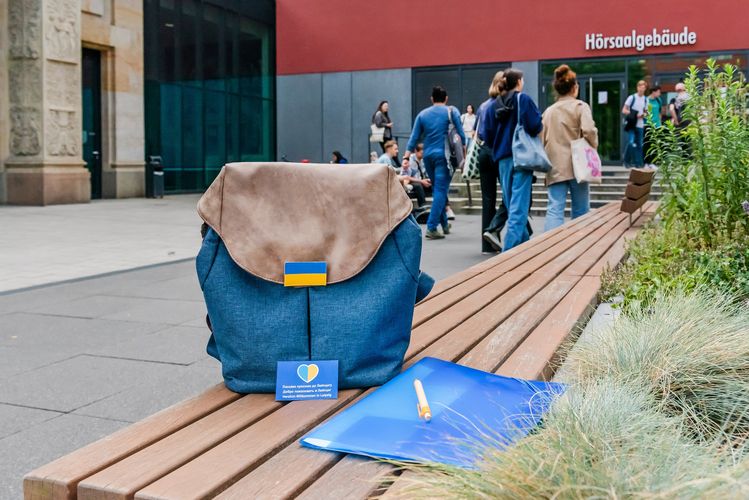Iuliia Pavlova (Lviv)
Prof. Dr. Iuliia Pavlova from the Lviv State University of Physical Culture is participating in the conference for the second time. Her teaching and research focus is on physical education and sports. Her research includes physical activity in different population groups, health-related quality of life, pro-health attitudes and anxiety, and the effects of Covid-19 on mental health and well-being. Before the war, she was responsible for some of the university's scientific projects funded by the Ministry of Education and Science of Ukraine.
Integrated in multidisciplinary EU project
Through the "Chance for Science" conference in April, Pavlova came into contact with Professor Michael Brach from the University of Münster. "He invited me to participate in the international PhysAgeNet-Projekt project, which is funded by the EU." The project aims to develop appropriate physical activity programmes for elderly people to improve their health, reduce chronic diseases and premature mortality. This should also save costs for society. "The working groups are looking at standards from evidence-based medicine, data on the use of biomarkers, environmental factors as well as research methodology for technology-assisted physical activity," says Iuliia Pavlova. 170 participants from 42 countries worldwide are involved in the project. A project like this broadens one's scientific horizons immensely," she says, "be it in terms of new findings or one's own scientific contacts.” She appreciates the communication with like-minded people and the constant access to new information and data. "I am very impressed with this project." It is of great social importance, in almost every country in the world, she said. "I am convinced that the results will also be applied in Ukraine."
Up to nine hours of alarm per day
Since the war began, Iuliia Pavlova has stayed in her hometown of Lviv, Ukraine. "Our city was also bombed, and there are air alarms every day. In the first months of the war, the alarm lasted up to 9 hours in total on some days, mostly at night." Explosions were expected, and every job became a challenge, Pavlova said. "To do scientific research under such conditions, I think it is important to be optimistic," she says.
Everyone has personal responsibility for the future
Today, more than ever, personal responsibility for the future of the country is felt in every professional activity, she says. "You have to improve yourself and do what you are good at as well as possible," she says. The Ukrainian state would need highly skilled professionals now and in the future. "With the support of different countries in the world, opportunities are opening up for Ukrainian scientists. These them to reach a new level," the researcher says.
The night before the war broke out, she sat at her desk until late, revising a scientific article. "Because on 24 February, my little son turned 10 months old. I wanted to buy him balloons and spend as much time as possible with him. But only a few hours later, my husband woke me up and sirens were wailing," she recalls.
Maryna Kabanets (Donezk / Bayreuth)
"The first conference has already brought about successful cooperation between Ukrainian and German scientists," says Prof. Dr. Maryna Kabanets. The professor of education was also present at the first conference. This time she is part of the preparatory team. "At the conference itself, I will translate if necessary and help with the technical organisation," she explains.
Connection to the European academic system important
At the Donetsk National Technical University, Kabanets heads the Language Training Department which is responsible for foreign languages, business Ukrainian and pedagogical disciplines. The professor knows the situation of her colleagues very well. "In the difficult circumstances in which people in Ukraine and refugees from Ukraine now live, it is very difficult to find the strength and motivation to continue working," she says. "The exchange with colleagues and the support we receive from outside help us to find new strength and inspiration."
Thanks to the conference, she herself is now involved in a DAAD project led by Professor Roland Happ from Leipzig University. This grants 24 Ukrainian doctoral students from three universities a scholarship for five months. In addition, Bachelor students are taught quantitative and qualitative research methods in educational and social sciences, as well as skills in scientific writing and publishing. "This is very important for the students to familiarise themselves with the European academic system so that they will be able to connect in the future. Our system, especially when it comes to publishing, still works a little differently," says Kabanets. It is still based on the science system that dates back to the USSR.
"The German colleagues give us the feeling that we are part of the European scientific community and the confidence that we can overcome all problems, win the war and continue our scientific and pedagogical work," says Kabanets.
Teaching only digitally possible
Since 2014, their university, which was originally located in Donetsk, has moved several times due to the conflict: after the Russian occupation of Donetsk, first to Pokrovsk (then Krasnoarmiisk). After the war began in 2022, the university then moved to Lutsk, a city in western Ukraine. "Thanks to the well-functioning online work that we had already tested during the Covid 19 pandemic, we didn't have to interrupt our work with students." But the lack of housing due to the large number of internally displaced persons prompted Maryna Kabanets to flee with her colleague Liudmyla Adariukova to friends in Germany. "We hoped at the time that we would be able to return home in a few weeks. Unfortunately, that was not the case." She has been teaching the courses from Bayreuth for a few months now. From there she supervises her students, who are themselves scattered all over Ukraine and Europe. "But all these circumstances have made us more flexible, I would even say they have brought us closer to the students, despite the distance," Kabanets says. "We are concerned about each student and try to support where we can."



Comments
No comments found!